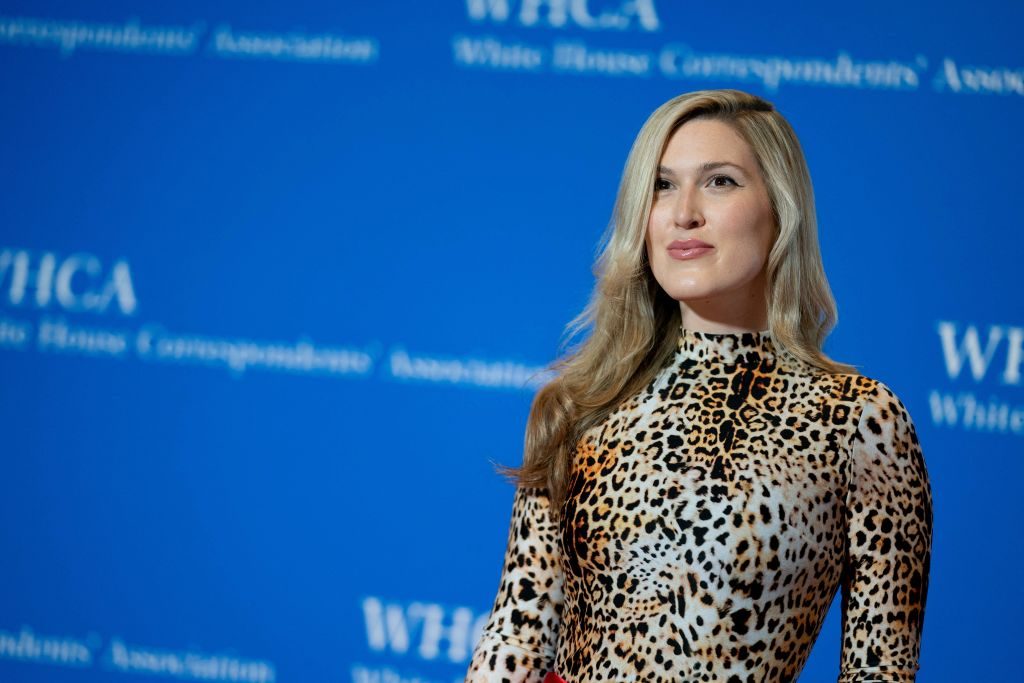Olivia Nuzzi has made a sudden return to the media spotlight after a self-imposed year in exile in California. Last year, in the run-up to the US election, the journalist lost her job at New York magazine because of a “personal relationship” with a “former reporting subject”. That subject turned out to be RFK Jr, and she has now produced a memoir, American Canto, in an attempt to set the record straight.
Despite a glitzy New York Times profile, the industry reaction to Nuzzi’s return and her upcoming book has been almost universally negative. Some fellow journalists have lamented the book’s weird prose and argued that her return diminishes the work of other female journalists. Adding fuel to the fire, her ex-fiancé, another political reporter, Ryan Lizza, has stoked rumours about her sexual history and relationships on his Substack.
But all these criticisms miss a core truth about the tradition Nuzzi actually comes from: the New Journalism of the Sixties and Seventies. She’s being treated as a neutral journalist, when really she is a writer who sometimes falls too heavily into the stories she writes about.
To see why, it helps to remember what New Journalism actually was. Tom Wolfe, Hunter S. Thompson, Norman Mailer, Joan Didion; these were not reporters in the conventional sense. They inserted themselves, often intrusively, into the political stories they covered. Didion’s dispatches from El Salvador placed her migraines at the centre of the narrative; her reports from California’s counterculture observed disturbing scenes — young girls seduced by older men, a child tripping on acid — without offering the kind of moral framing modern sensibilities demand.
“Remember what it was to be me,” she wrote, “that is always the point”. For New Journalism, this stretched to the extreme. Mailer’s political writing was saturated with masculine bravado and even his awful personal behaviour, such as stabbing his wife, almost to death, was turned into fodder for his books. It did not prevent him from being treated as a defining chronicler of his era.
By those standards, Nuzzi is not an outlier but an inheritor. She does not possess Didion’s shimmering prose or Wolfe’s neon flourishes, but she shares their instinct for capturing psychological atmosphere: the stray gesture, the moment of vanity, the emotional humility of a failing campaign, such as that of Rudy Giuliani’s son, Andrew, who ran for governor of NY, an act born of “self-harm” and “daddy issues”.
Her best profiles have treated American politics as a theatre of need rather than ideology. She produced cutting details, which her critics now throw back to her, like her suggestion that, for the faltering Biden campaign, “a sex scandal might help him right now”.
Of course, in that field, her ethical lapses certainly mean she got it very wrong sometimes. But they shouldn’t discredit her whole oeuvre, which contains some brilliance. For every “‘Baby, don’t worry,’ he said. ‘It’s not a worm’” — referring to Kennedy’s infamous brain worm — there remain many profound, worthwhile observations. For example, she is right to say that “the politician’s greatest trick is to convince you that he is not one”. She should know.
New Journalism’s great practitioners were rarely paragons of restraint. Their proximity to their subjects, whether social, emotional, sometimes physical, generated both the strength and the scandal of their writing. This does not mean the rules are irrelevant. Nuzzi’s “digital affair” with “the politician” — she never names Kennedy in her book — unquestionably violated them. But the media’s rehabilitation of her shatters their ideal of journalistic purity: the promise of their reporters as neutral instruments through which reality passes unsullied. As distinguished news outlets tell her story, they implicitly say that such a promise never fully matched the lived reality of political reporting. Journalists form relationships, alliances, rivalries; they move in the same professional and social circles as the people they write about.
Still, there is a difference between acknowledging entanglement and normalising it. New Journalism worked when self-insertion clarified the subject; it failed when the writer became the only story. That is something Nuzzi occasionally fell afoul of. When the line between reporter and protagonist dissolves completely, the narrative collapses into solipsism.
But the discomfort the Nuzzi affair has triggered may also be productive. It forces a long-delayed reckoning with the contradictions of political journalism: the desire for intimacy without corruption, access without dependency, revelation without the vulnerability of exposure. New Journalism knew such purity was a myth. Nuzzi, for better or worse, writes from the same understanding. She had already achieved what many dream of: being one of the best political reporters of her generation. But journalism is a flailing industry, even for those who can conquer it, and, in the end, we can never escape our own personalities.
As she remakes herself, whether hated or adored, Nuzzi is becoming a far more profitable and commodified thing — a personal brand and a bona fide star.










Join the discussion
Join like minded readers that support our journalism by becoming a paid subscriber
To join the discussion in the comments, become a paid subscriber.
Join like minded readers that support our journalism, read unlimited articles and enjoy other subscriber-only benefits.
Subscribe